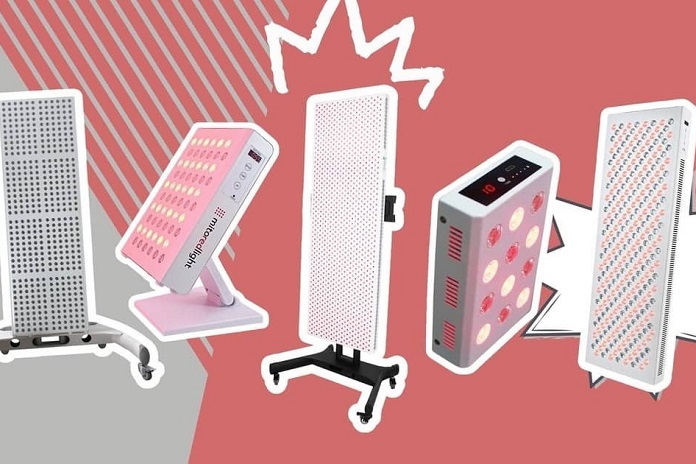Today’s world is all about Red Light Therapy Panels, which are in high demand due to their potential health benefits and versatility. However, Red light therapy (RLT) has gained significant popularity in recent years for its potential benefits, ranging from improved skin health to pain relief and enhanced muscle recovery. Similarly, many high-quality red light therapy panels can be quite expensive.
For Fortunate, there are several budget-friendly options for this. This guide explores seven of the best budget-friendly red light therapy panels, offering detailed insights into their features, advantages, and considerations.
If you are searching for the Best Budget – Best-friendly Red Light Therapy Panel then this topic is for you
Pain Relief: Red light therapy helps to reduce pain and inflammation. It can be beneficial for conditions such as arthritis, muscle soreness, and joint pain by promoting the healing of damaged tissues and reducing inflammation.
Skin Health: RLT is widely used for its potential benefits to skin health. It may help improve skin tone, reduce wrinkles, and promote collagen production. It’s often used to treat acne, reduce scarring, and improve overall skin texture.
Muscle Recovery: Athletes and fitness enthusiasts use RLT to enhance muscle recovery and reduce soreness. However, the therapy can help accelerate the healing of muscles and tissues, which makes it easier to recover from strenuous exercise.
Wound Healing: Red light therapy may accelerate the healing process of wounds, including cuts, bruises, and surgical incisions. It stimulates cellular repair processes and can reduce scar formation.
Hair Growth: In addition, some studies suggest that RLT can stimulate hair growth in poeple with certain types of hair loss, such as androgenetic alopecia (male and female pattern baldness).
2. Non-Invasive and Safe
Non-Invasive: Unlike surgical procedures or some medications, RLT is a non-invasive therapy. It doesn’t require any incisions or injections, making it a less intimidating option for many people.
Safety: RLT is generally considered safe when used as directed. It uses low-level light, which is non-ionizing and does not carry the risks associated with UV light or other forms of radiation.
Minimal Side Effects: When used correctly, RLT has minimal side effects. Some people may experience mild redness or irritation, but these effects are typically short-lived and not severe.
3. Convenience and Accessibility
Home Use: Red light therapy panels can be used in the comfort of your own home. This accessibility allows people to integrate therapy into their daily routine without the need for frequent visits to a clinic or therapy centre.
Ease of Use: Most RLT panels are designed to be user-friendly. They typically come with straightforward instructions and are easy to set up and operate, making them suitable for people with varying levels of experience.
Cost-Effectiveness: While high-end RLT panels can be pricey, there are budget-friendly options available in the market. Investing in a personal panel can be cost-effective compared to ongoing treatments at a clinic.
4. Scientific Support and Research
Evidence-Based: There is a growing body of research supporting the effectiveness of red light therapy. Numerous studies have demonstrated its benefits in areas such as pain management, skin health, and wound healing.
Mechanism of Action: RLT works by stimulating cellular processes and promoting the production of ATP (adenosine triphosphate), the energy currency of cells. This process helps enhance cellular repair, reduce inflammation, and improve overall tissue health.
5. Versatility and Customization
Customizable Treatments: RLT panels often allow for customizable treatments. People can adjust the duration, intensity, and wavelength of the light based on their specific needs and goals.
Variety of Applications: RLT can be used for various therapeutic applications, from general wellness to targeted treatments. Panels come in different sizes and designs, allowing people to choose the one that best suits their needs, whether for facial treatments or full-body applications.
Portable Options: Many red light therapy panels are designed to be portable, enabling people to apply therapy to specific areas of the body or use the device while on the go.
6. Complementary Therapy
Integration with Other Treatments: RLT can complement other treatments and therapies. For example, it can be used alongside physical therapy and skincare routines.
Holistic Approach: Many people appreciate RLT as part of a holistic approach to health and wellness. It can be integrated into a broader self-care routine that includes diet, exercise, and other wellness practices.
Top 7 Best Budget-Friendly Red Light Therapy Panel
1. MitoRed MitoMini 1.0
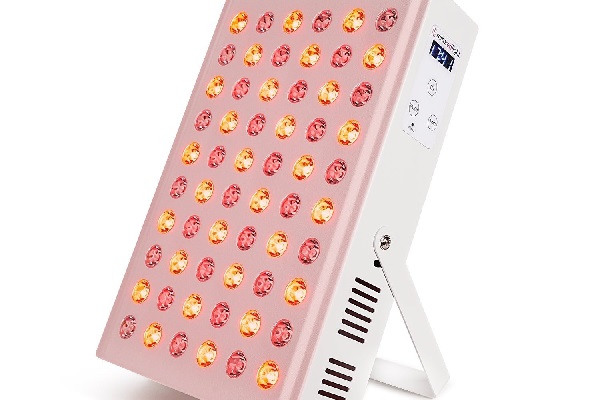
Price:
$200-$250
Features:
The MitoRed MitoMini 1.0 is a compact, portable red light therapy panel designed to provide effective light therapy in a convenient size.
Its key features include:
- Wavelengths: Combines red light (660 nm) and near-infrared light (850 nm), offering a balanced spectrum for therapeutic effects.
- Power Output: Provides a decent power density for its size, ensuring effective light.
- Design: Portable and lightweight, making it easy to use on various parts of the body or take on the go.
- Build Quality: Durable construction with a sleek, modern design.
Pros:
- Portability: Its small size makes it easy to use on different parts of the body and convenient for travel.
- Affordability: Offers a good balance of performance and cost.
- Ease of Use: Simple operation and setup.
- Versatility: Suitable for various applications, including facial and small-area treatments.
Cons:
- Limited Coverage: Due to its smaller size, it might not be ideal for treating larger body areas in one session.
- Intensity: May not offer the same power density as larger, more expensive panels.
The MitoMini 1.0 is ideal for people who seek a cost-effective, portable solution for red light therapy, especially those who prioritize convenience and versatility.
2. Hooga HG1 Red Light Therapy Panel
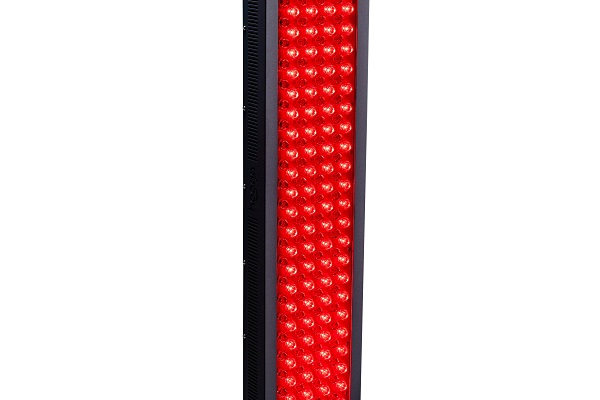
Price Range:
$200-$250
Features:
The Hooga HG1 is designed to provide effective red light therapy with a focus on affordability.
Its Key features include:
- Wavelengths: Utilize red light (660 nm) and near-infrared light (850 nm), which are popular for their therapeutic benefits.
- Power Output: Offers a strong power density, that enhances the efficacy of the therapy.
- Design: Features a compact design that is suitable for home use.
- Build Quality: Constructed with high-quality materials for durability.
Pros:
- High Power Density: Provides effective light penetration, enhancing therapeutic benefits.
- Affordability: Competitive pricing for the power and features offered.
- User-Friendly: Easy to set up and operate.
Cons:
- Size Limitations: May be less effective for treating larger areas of the body in a single session.
- Build Quality: Some people might find the build quality less robust compared to higher-end models.
The Hooga HG1 is a solid choice for those who want a powerful and affordable red light therapy panel without compromising on quality.
3. Red Light Rising Red Light Therapy Panel (Mini)
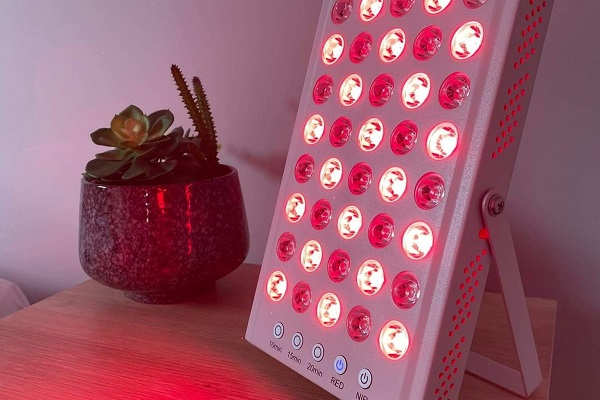
Price Range:
$250-$300
Features:
The Red Light Rising Mini panel is known for its effectiveness and high-quality design. Its features include:
- Wavelengths: Offers a blend of red (660 nm) and near-infrared (850 nm) light, catering to a broad range of therapeutic needs.
- Power Output: Delivers high irradiance for effective light therapy.
- Design: Compact and sleek, designed for ease of use and portability.
- Build Quality: High standards of construction with attention to detail.
Pros:
- High Quality: Known for its effective performance and durable construction.
- Versatility: Suitable for a variety of therapeutic applications.
- Portability: Compact size makes it easy to use and store.
Cons:
- Price: Slightly higher in price compared to other budget options, though still reasonable for its quality.
- Coverage Area: Its mini size might not cover larger areas efficiently.
The Red Light Rising Mini panel is ideal for people who want a high-quality, portable red light therapy solution that delivers strong performance.
4. Sunlighten SoloCarbon Infrared Therapy Panel
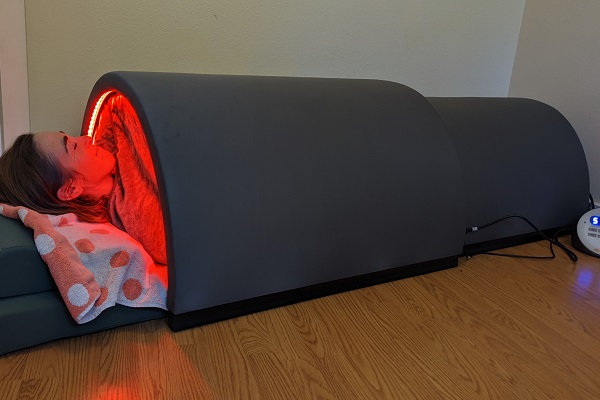
Price Range:
$200-$300
Features:
The Sunlighten SoloCarbon panel offers a full-spectrum infrared therapy experience.
Its Key features include:
- Wavelengths: Provides a range of infrared wavelengths, including near-infrared, for comprehensive therapy.
- Power Output: Effective power density for penetrating deeper tissues.
- Design: Compact and user-friendly design.
- Build Quality: Durable construction with a focus on performance.
Pros:
- Full-Spectrum Therapy: Covers a range of infrared wavelengths for diverse therapeutic effects.
- Effective Power Density: Good light penetration for deeper tissue treatment.
- Durability: Built with high-quality materials for long-lasting use.
Cons:
- Size: Compact design might limit its effectiveness for treating larger body areas in one session.
- Price: On the higher end of the budget-friendly spectrum, but offers robust features.
The Sunlighten SoloCarbon panel is an excellent option for those seeking a full-spectrum infrared therapy panel that balances affordability with high performance.
5. Tendlite Red Light Therapy Device
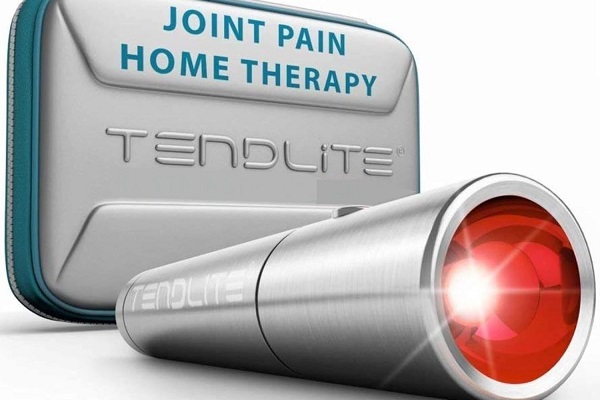
Price Range:
$150-$200
Features:
The Tendlite device is a handheld red light therapy tool, offering localized treatment.
Its features include:
- Wavelengths: Provides red light at 660 nm, suitable for targeting specific areas.
- Power Output: High intensity for effective localized therapy.
- Design: Compact and handheld, making it ideal for targeted treatments.
- Build Quality: Well-built and designed for ease of use.
Pros:
- Localized Treatment: Ideal for targeting specific pain points or areas of concern.
- Affordability: One of the most cost-effective options available.
- Ease of Use: Simple, portable, and effective for focused treatments.
Cons:
- Coverage Area: Limited to small, localized areas due to its handheld design.
- Intensity: While effective for localized treatment, it may not be as powerful for broader applications.
The Tendlite device is perfect for people looking for a cost-effective solution for localized red light therapy, such as treating specific pain or skin issues.
6. PlatinumLED BIO-300
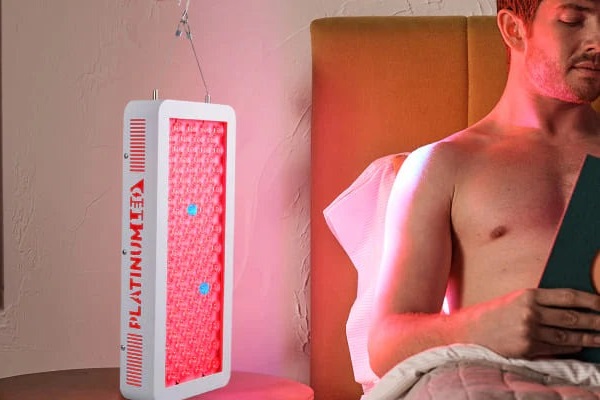
Price Range:
$250-$300
Features:
The PlatinumLED BIO-300 is designed for those who want a high-quality red light therapy panel without a premium price tag.
Its features include:
- Wavelengths: Combines red (660 nm) and near-infrared (850 nm) light for comprehensive therapy.
- Power Output: High irradiance for effective results.
- Design: Compact and versatile, suitable for various treatments.
- Build Quality: Known for its solid construction and durability.
Pros:
- High Irradiance: Ensures effective light therapy with strong power density.
- Versatile Use: Suitable for various therapeutic applications, including skin and muscle treatments.
- Durability: Solid construction with high-quality materials.
Cons:
- Price: Slightly higher cost compared to some other budget-friendly options.
- Size: The compact design may not cover large body areas in a single session.
The PlatinumLED BIO-300 provides a great balance of performance and affordability, making it a strong contender for those seeking a reliable and effective red light therapy panel.
7. Kleem Organics Red Light Therapy Device
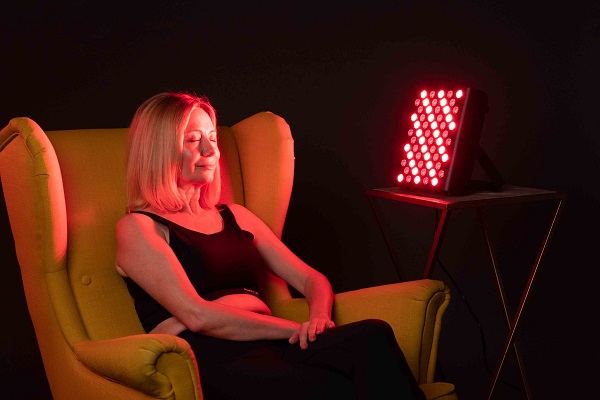
Price Range:
$150-$200
Features:
The Kleem Organics device is a compact and affordable option for red light therapy.
Its features include:
- Wavelengths: Provides red light at 660 nm for targeted therapy.
- Power Output: Decent intensity for effective localized treatments.
- Design: Small and portable, designed for facial and localized treatments.
- Build Quality: Good construction with a focus on user experience.
Pros:
- Affordability: One of the most budget-friendly options, which makes it accessible for many users.
- Portability: Easy to use for facial and small-area treatments.
- Effective Results: Provides good value for the price, especially for localized therapy.
Cons:
- Coverage Area: Limited to small areas due to its compact size.
- Intensity: May not be as powerful as larger panels for broader applications.
Choosing the Right Red Light Therapy Panel
When selecting a red light therapy panel, consider the following factors to ensure you choose the best option for your needs:
- Wavelengths: Red light therapy typically uses wavelengths around 660 nm for red light and 850 nm for near-infrared light. Make sure that the panel offers the appropriate wavelengths for your intended use.
- Power Output: Higher power density or irradiance can lead to more effective treatments. Look for panels that provide adequate intensity for your needs.
- Size and Design: Consider the size of the panel and how it fits into your lifestyle. Larger panels cover more area but can be more expensive. Smaller, portable panels are more versatile but may cover less area.
- Build Quality: Durability and construction quality are important for longevity and effective performance. Make sure that the panel is made from high-quality materials and is well-constructed.
- Price: Balance your budget with the features and quality of the panel. While budget-friendly options are available, investing a bit more may provide better performance and durability.
- Ease of Use: Choose a panel that is user-friendly and fits easily into your routine. Consider factors like controls, setup, and maintenance.
- Reviews and Reputation: Research people’s reviews and brand reputation to gauge the effectiveness and reliability of the panel.
Conclusion
In conclusion, the red light therapy panels listed above offer a range of options for those seeking affordable solutions without sacrificing quality.
Whether you need a compact handheld device or a more versatile panel, there are budget-friendly choices that can deliver therapeutic benefits.
